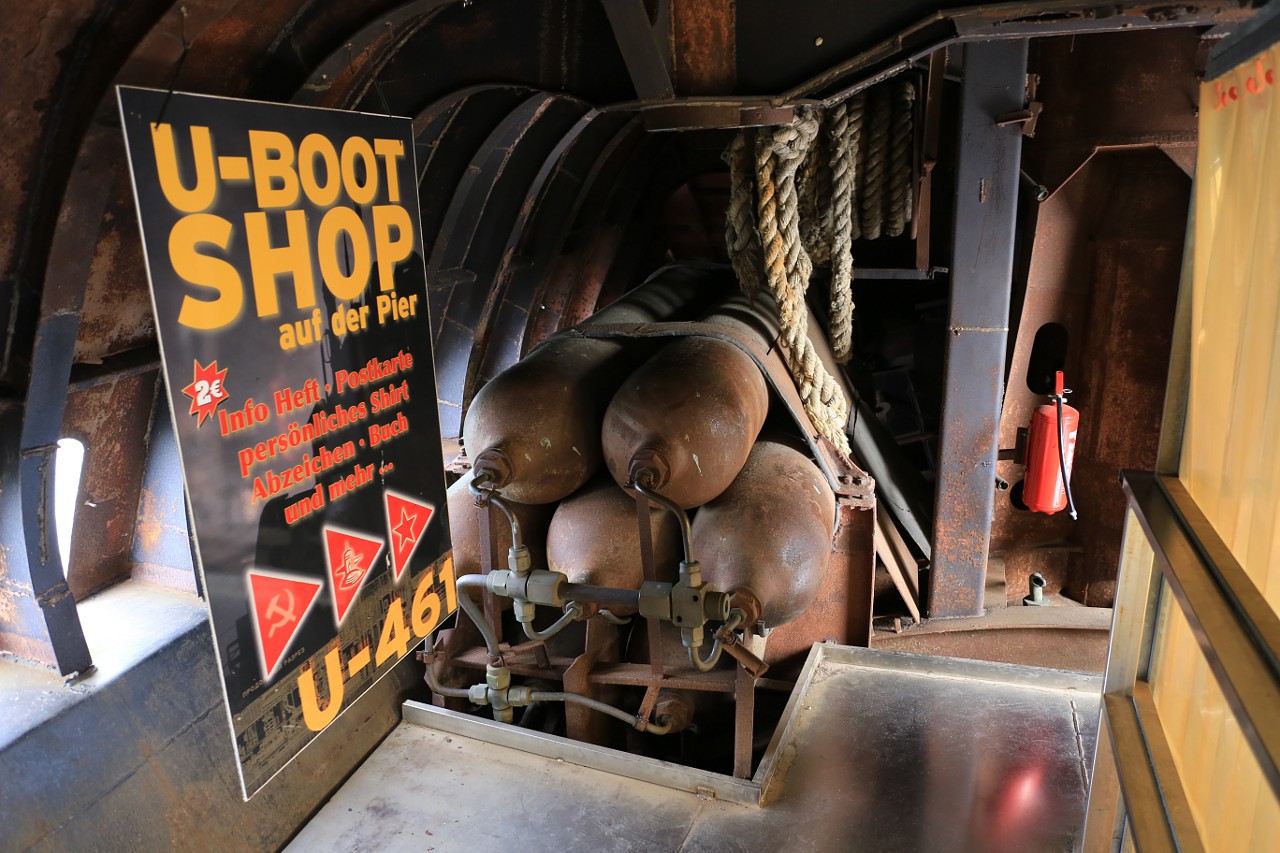U461 Submarine Compartments (Juliett-class)
After examining the submarine from the outside, we will go down to the interior. On existing submarines, the crew uses narrow vertical hatches on the deck and in the wheelhouse, in the museum U461 special entrances are cut for visitors.
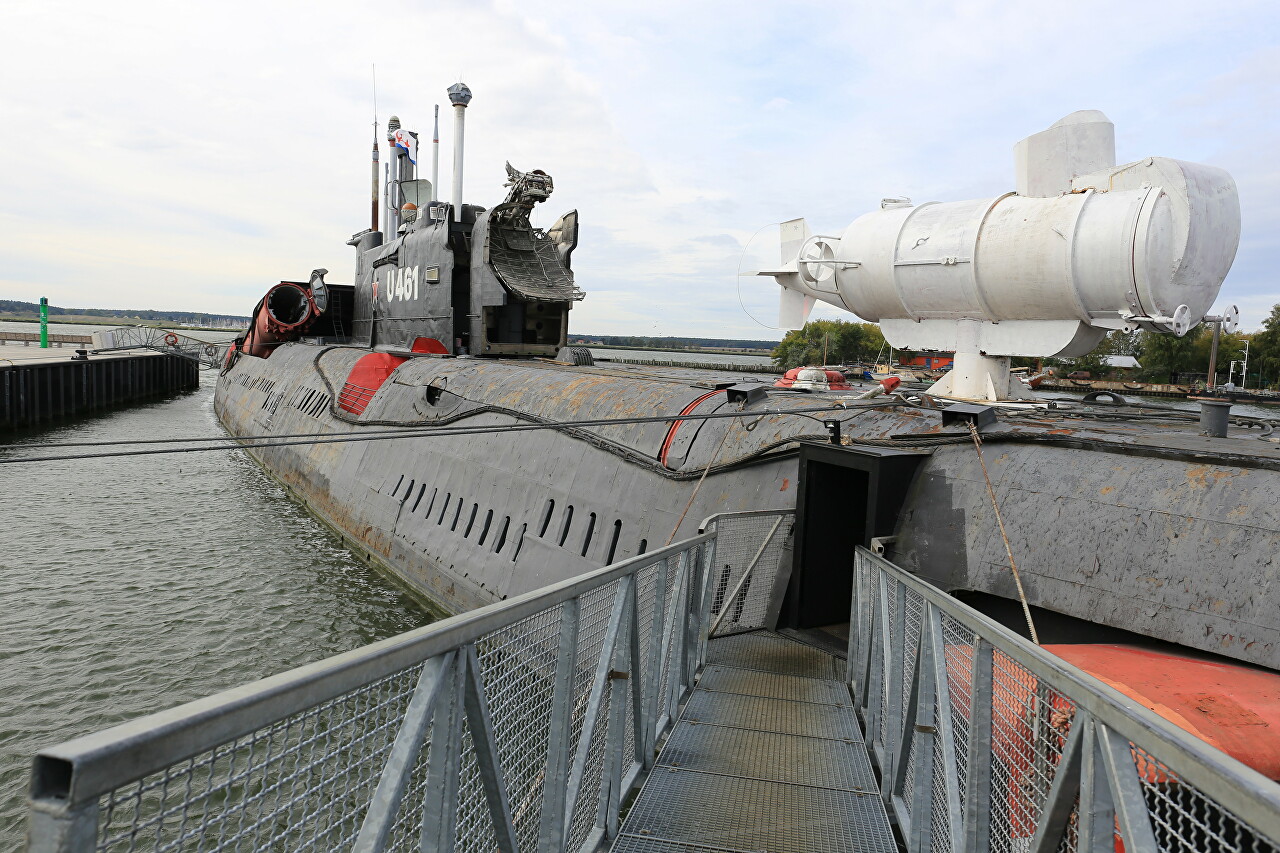
First of all, we get to the forward torpedo compartment, where the rear covers and launch equipment of 6 553 mm torpedo tubes go out. The compartment is also a cockpit for torpedoists, there are ten suspended bunks. Due to the lack of space, the number of bunks is significantly less than the number of crew, so the sailors had to take turns.
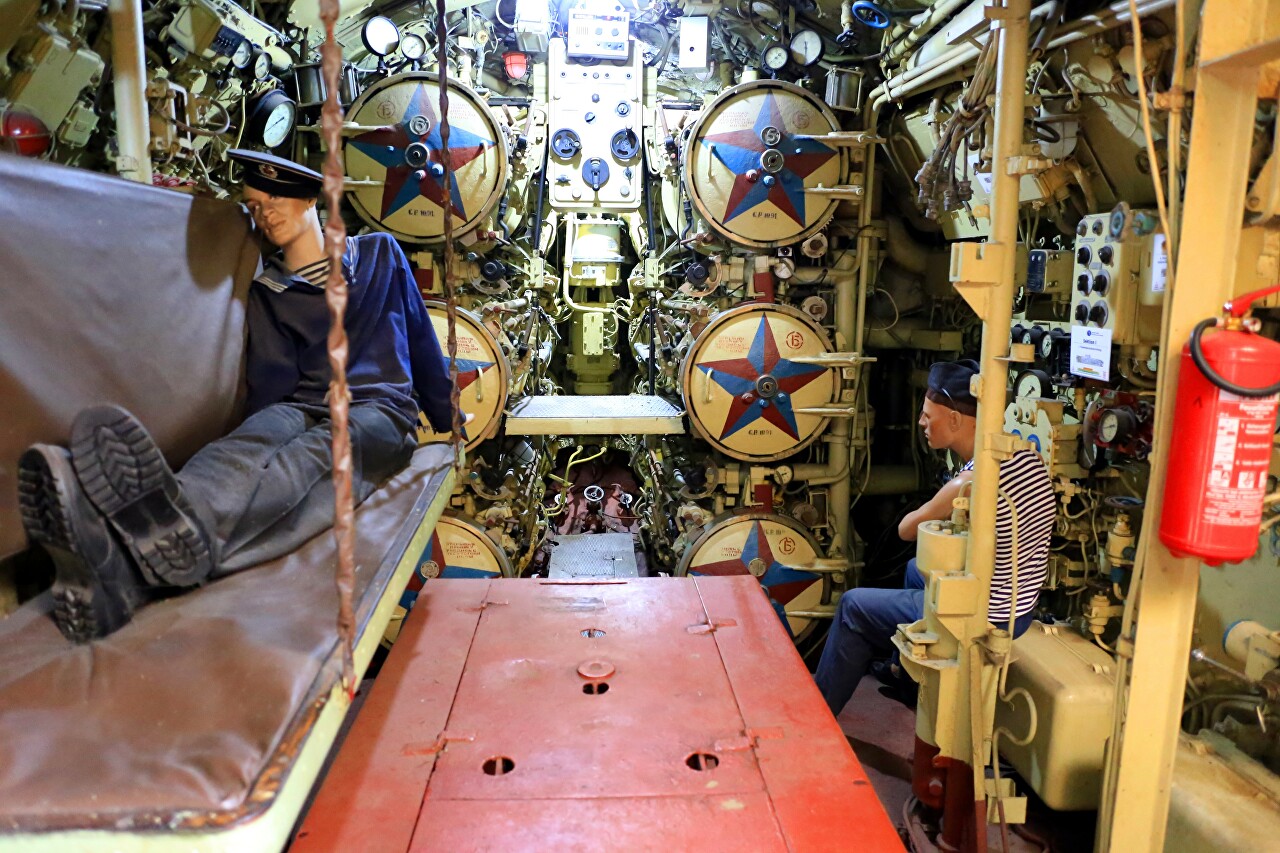
Go to the second compartment. There are four-person officer cabins here. As you can see, the living conditions are quite tolerable, the beds are wide, there is a table. Above the cabins there is a compartment for storing torpedoes, the deck below - batteries.

Another officer's cabin. The wooden furniture and lining of the bulkheads are amazing. I think that on a warship, combustible materials should be used minimally, and even more so on a submarine, where a fire of death is similar.
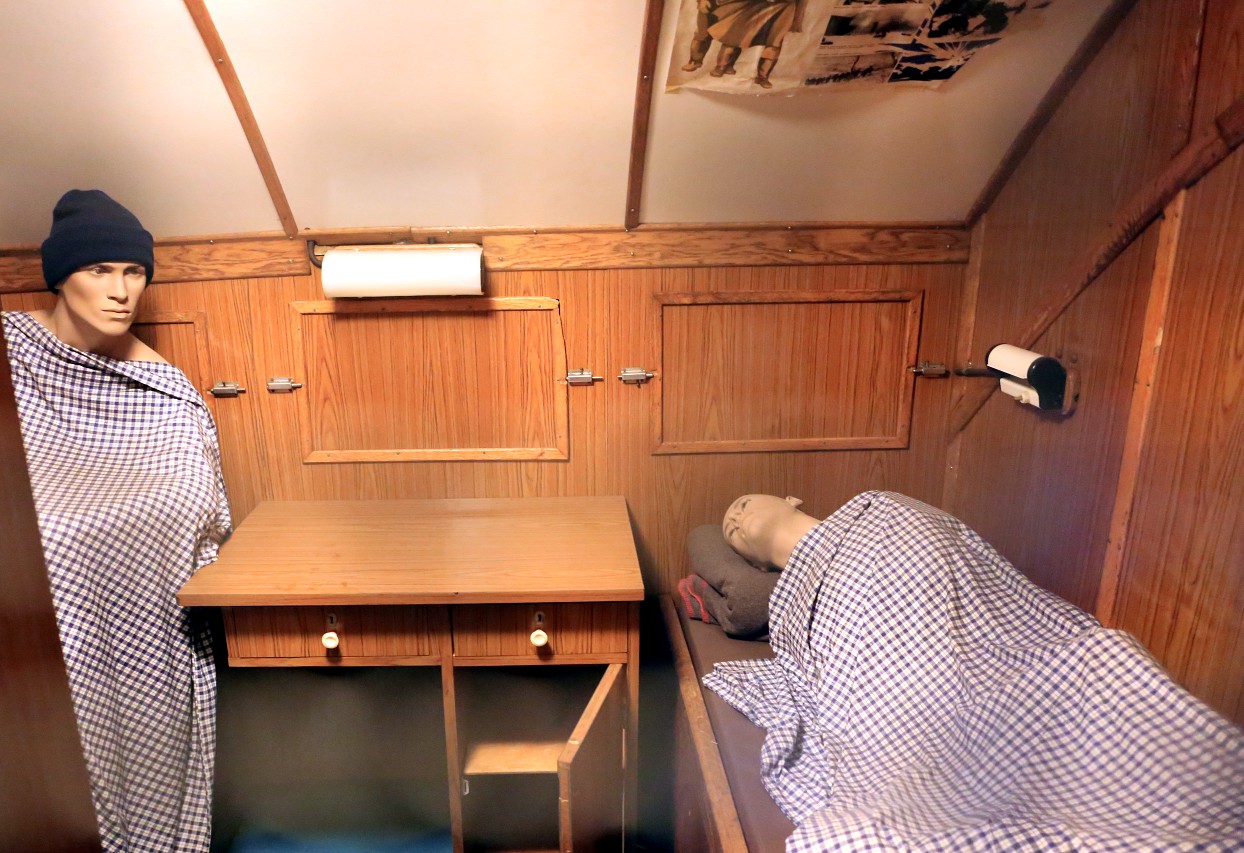
In the second compartment there is also a small officer's mess. Above the cabins there is a compartment for storing torpedoes, the deck below - batteries.
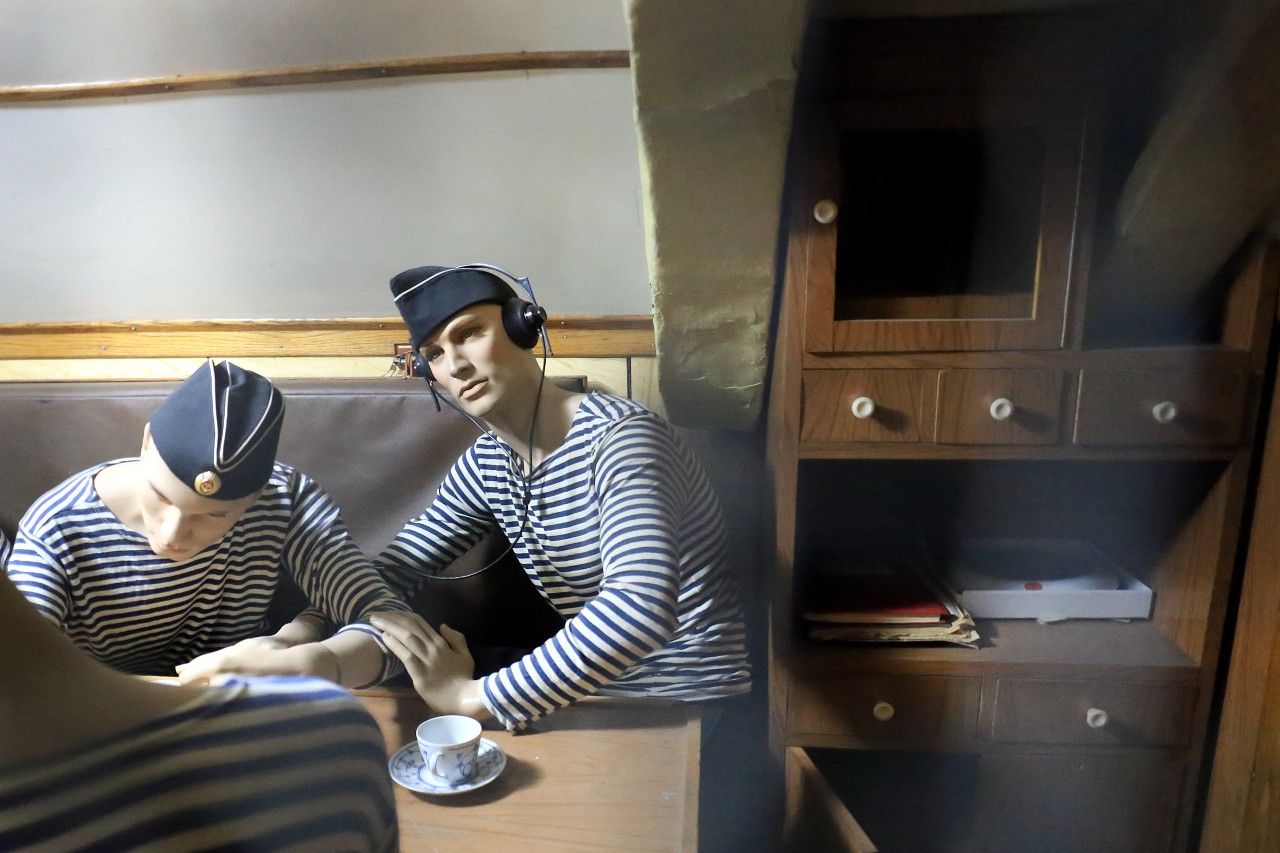
There is only one washbasin for the entire living block of six cabins.
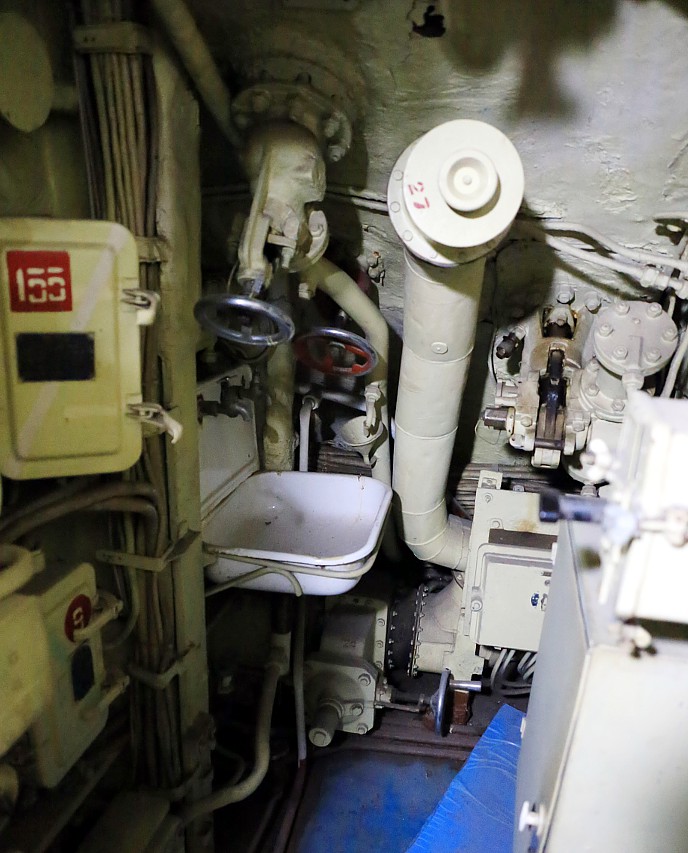
The fourth compartment is very tightly packed with all sorts of equipment.
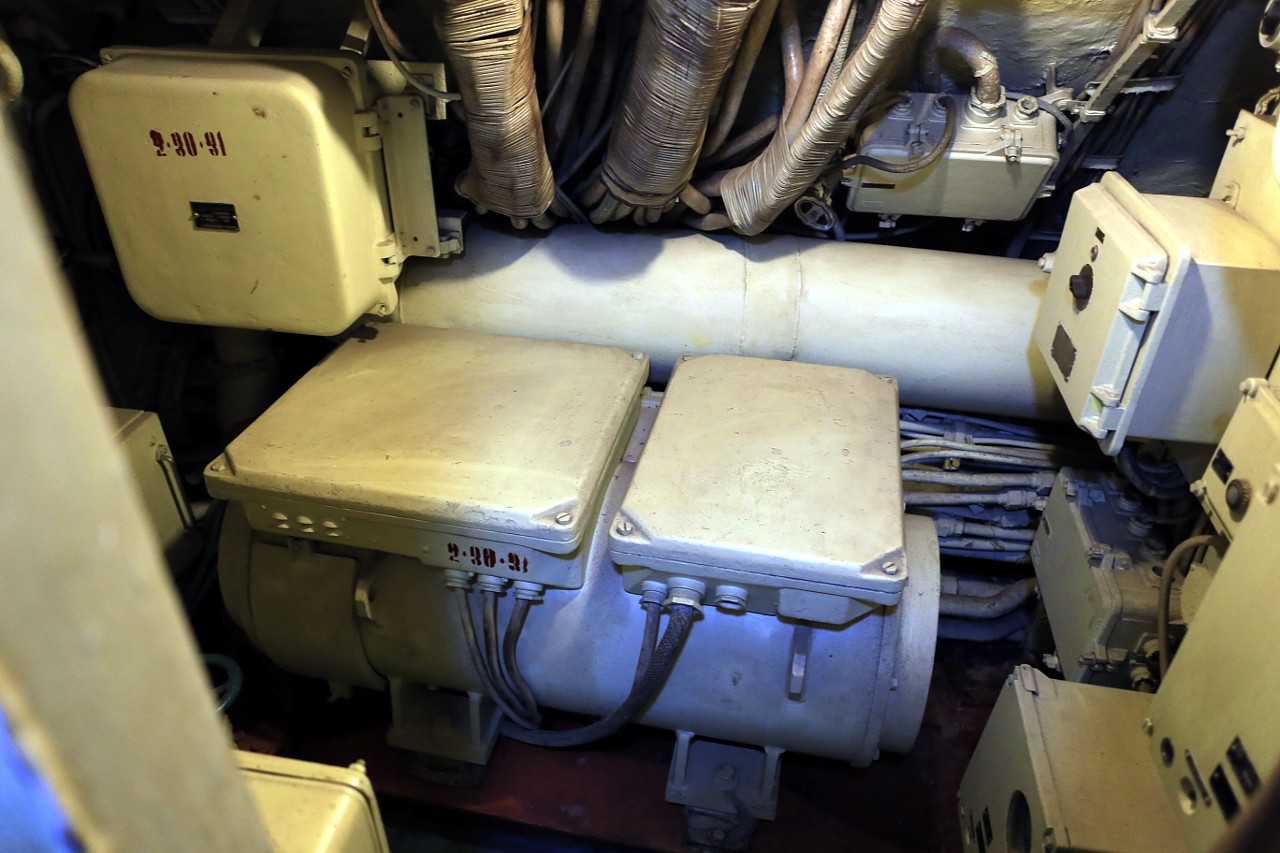
These are mainly power supply systems and control devices for the missile guidance antenna system.
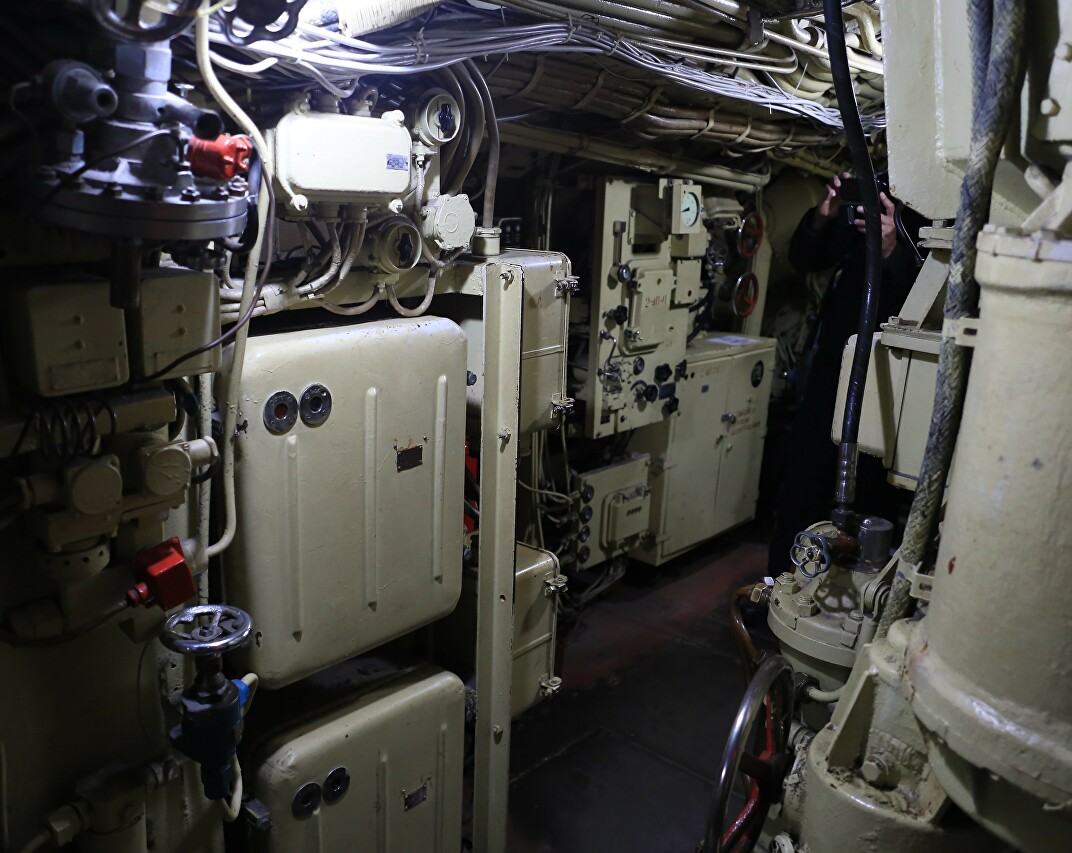
Hydraulic drive of the antenna stabilizer.
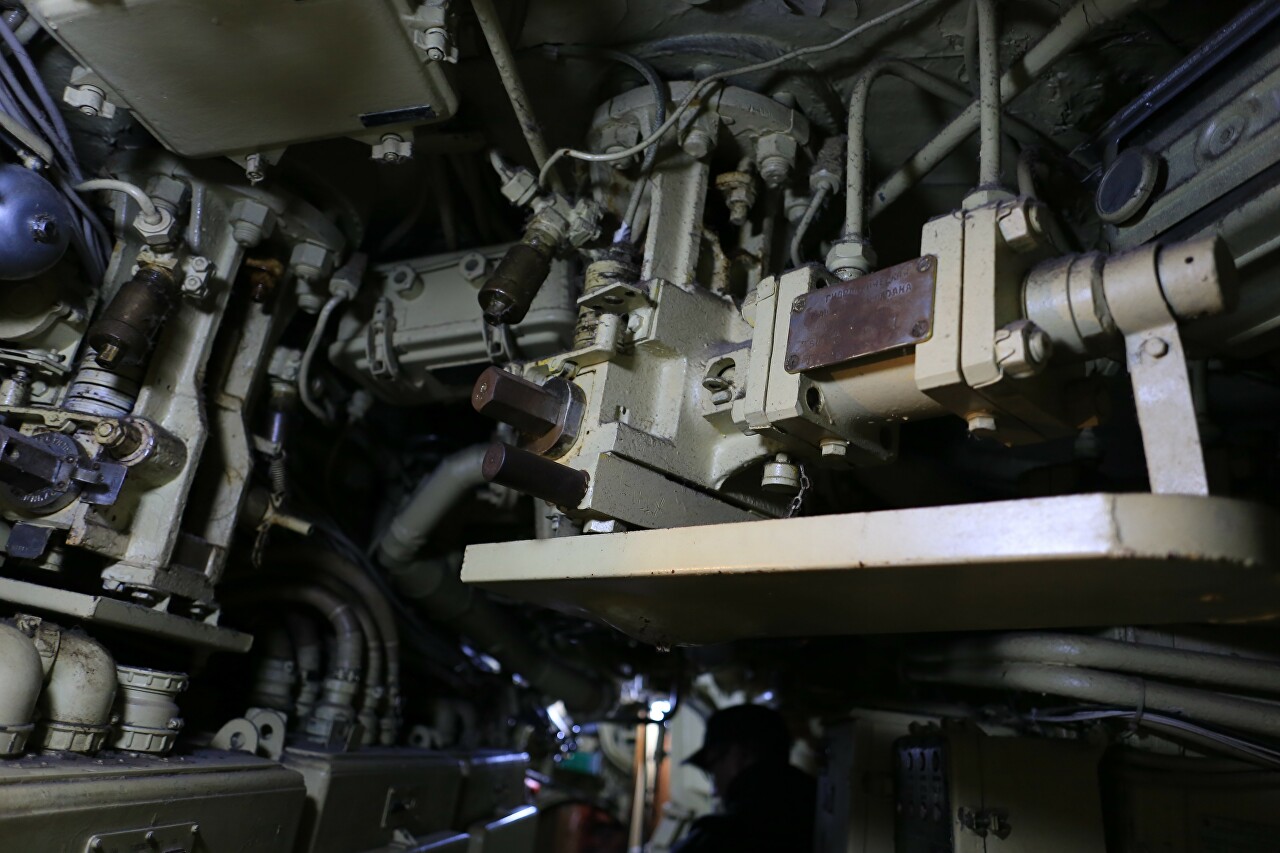
It's so crowded here that you can only wonder how they work in a combat situation.
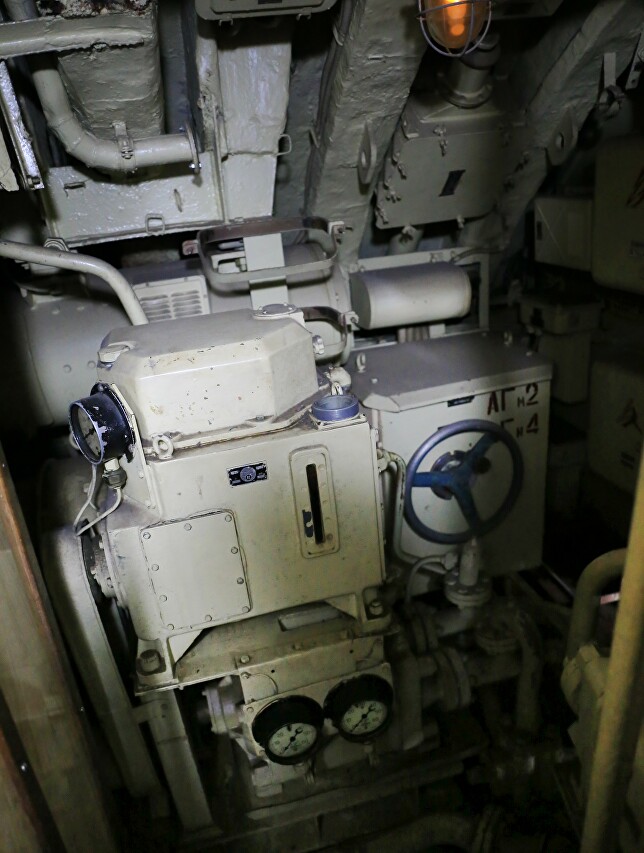
To be honest, I felt extremely uncomfortable in this compartment. I've been inside a few submarines, but I've never seen anything so cramped.
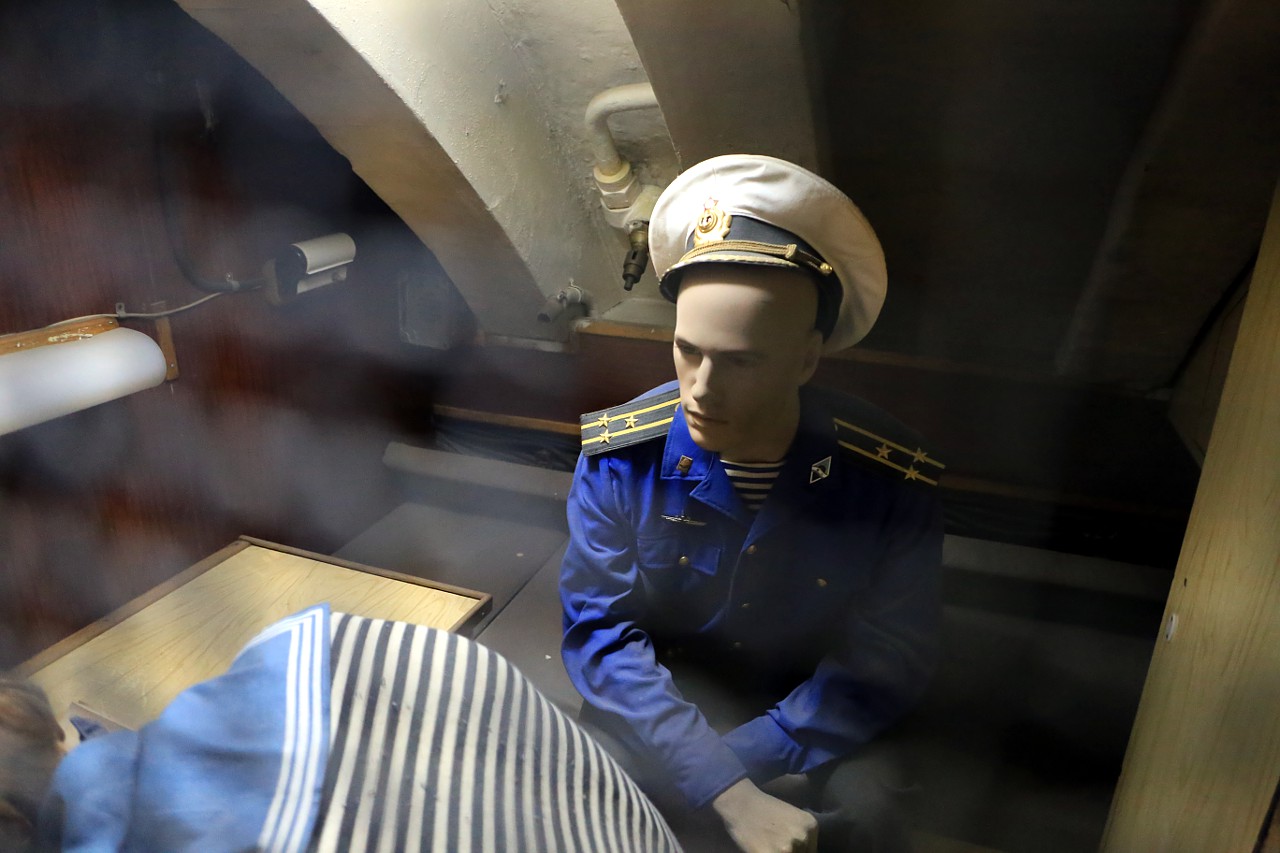
One can only envy the endurance of people who spent up to three months in such conditions.
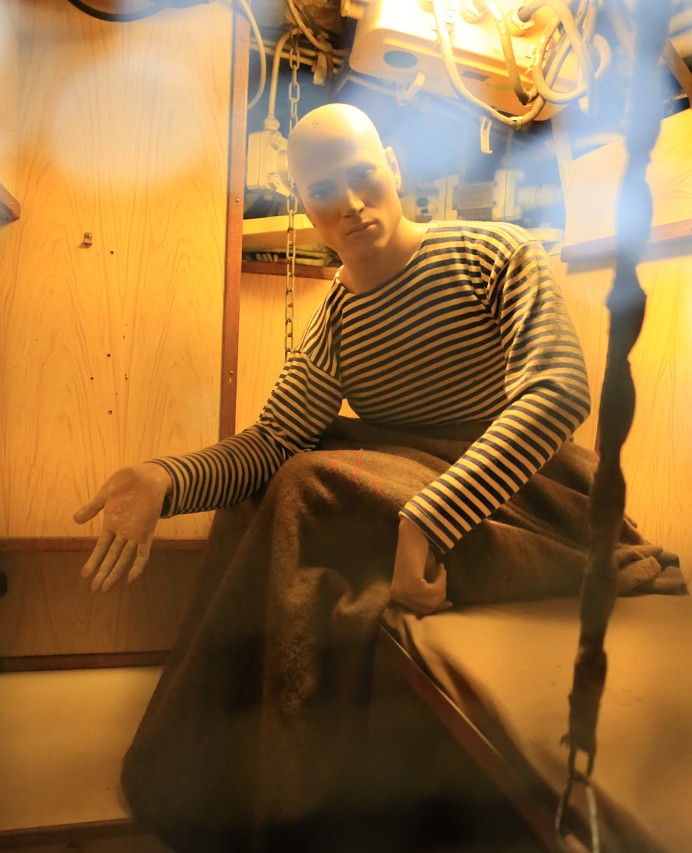
The compartments are separated by strong bulkheads that can withstand high water pressure when the compartment is flooded at depth, the hatches between them are very narrow and it is not easy for an unusual person to climb through it. Trained sailors move between compartments by running.
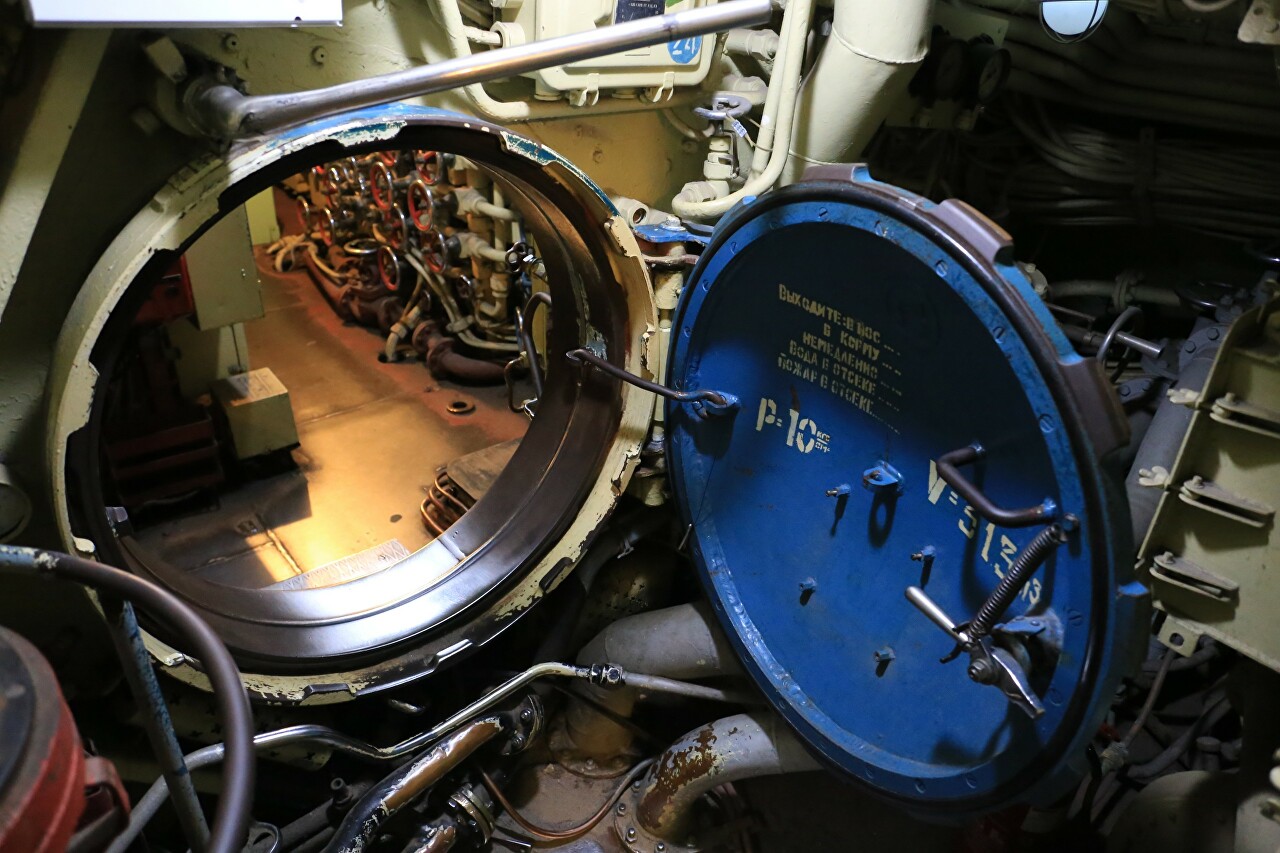
The fourth compartment occupies the Central post, this is the heart and brain of the ship.
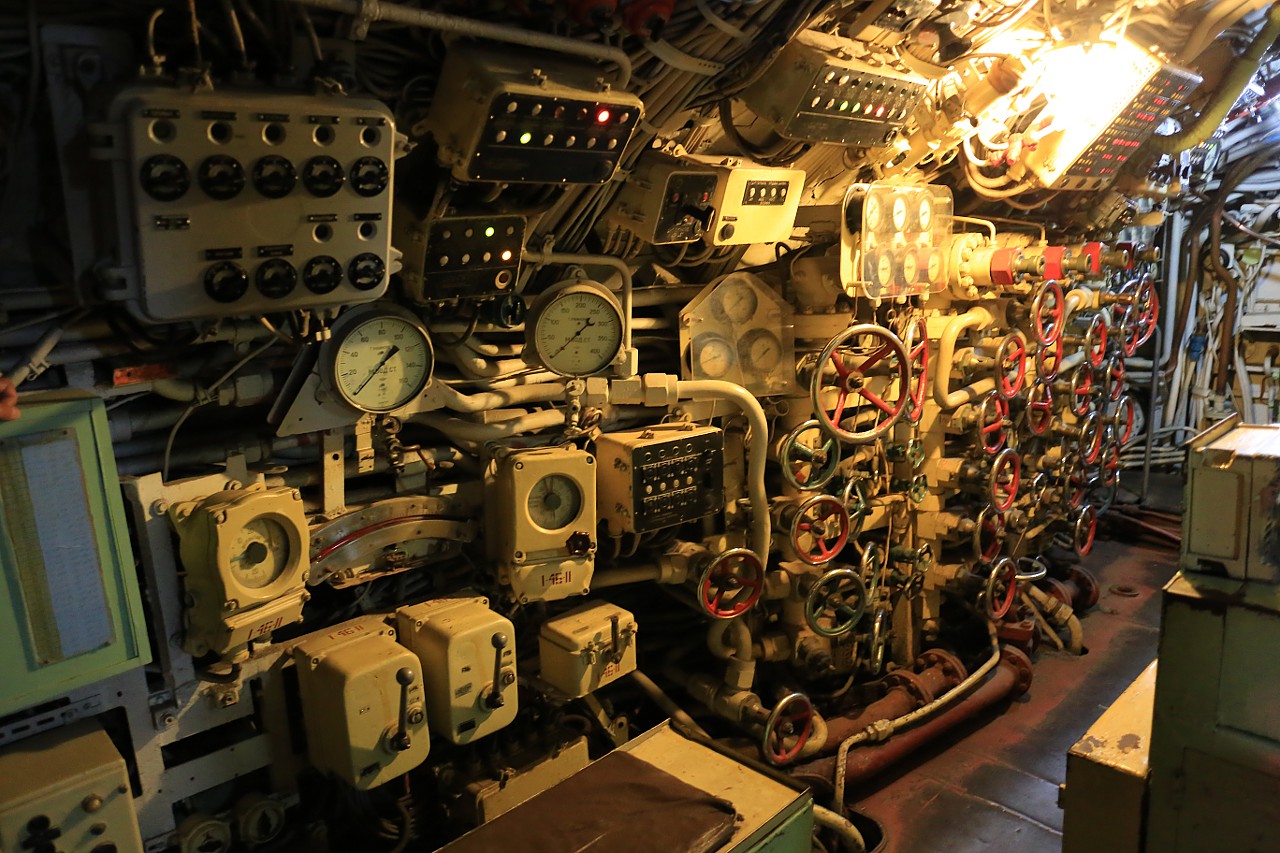
Navigator's cabin. On the left is navigation equipment, and on the right is a course planner tablet.
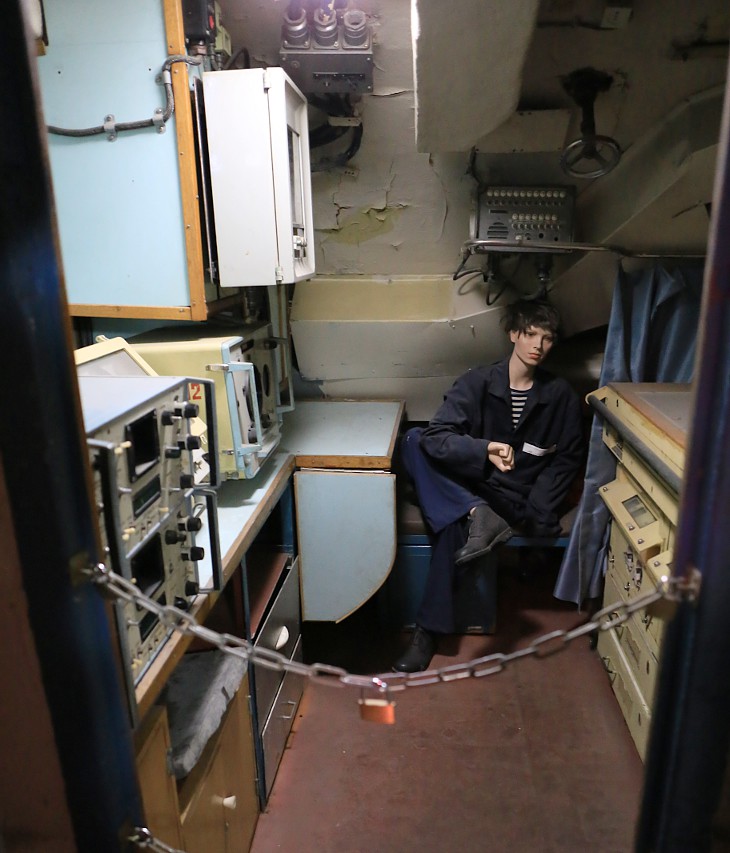
Torpedo firing control post. On the left is a cabinet with many dials, this is an electromechanical calculator that facilitates the calculation of a torpedo attack. During the Second World War, Soviet submariners had only a tablet and a logarithmic ruler, the production of torpedo firing machines was established after the war on the basis of captured German samples.
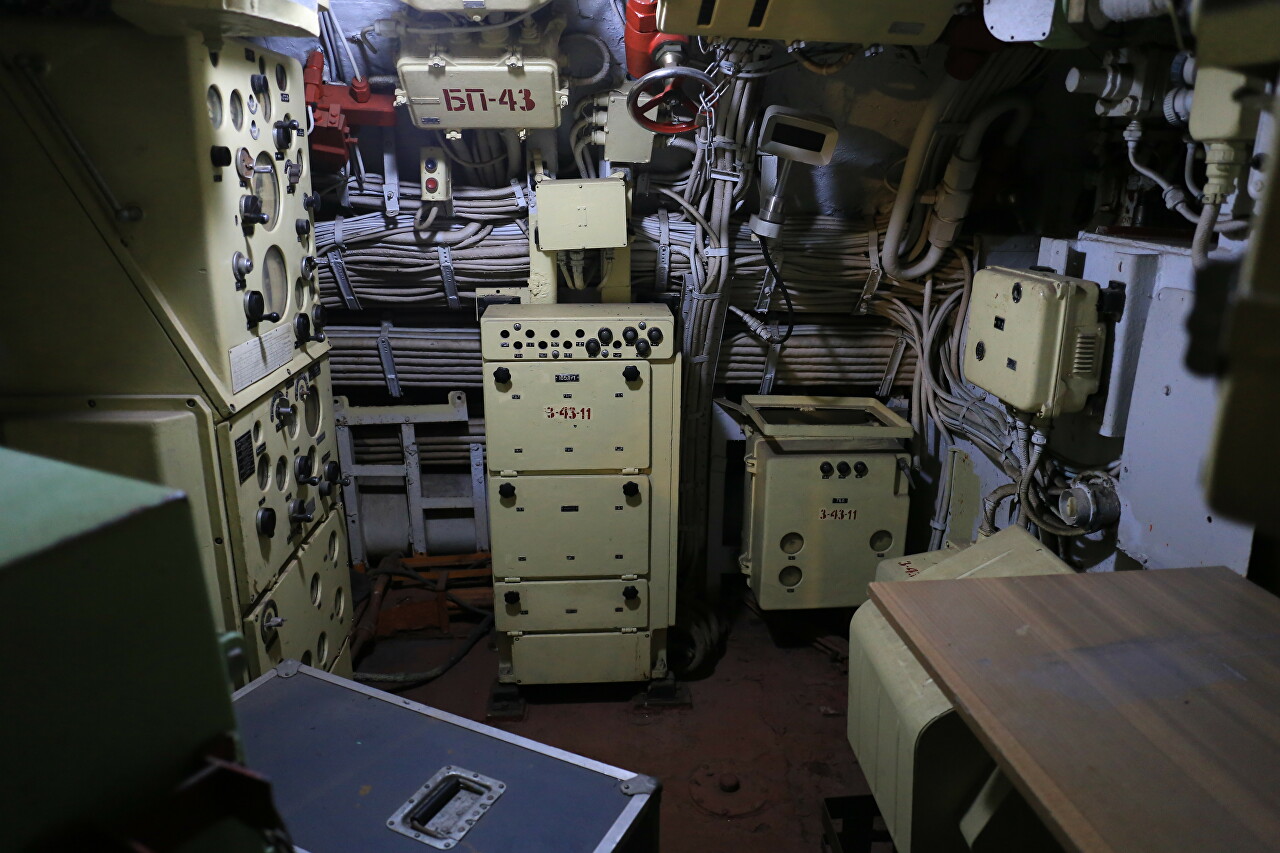
Missile launch control post. The submarines of this type were armed with four P-5 or P-6 anti-ship missiles.
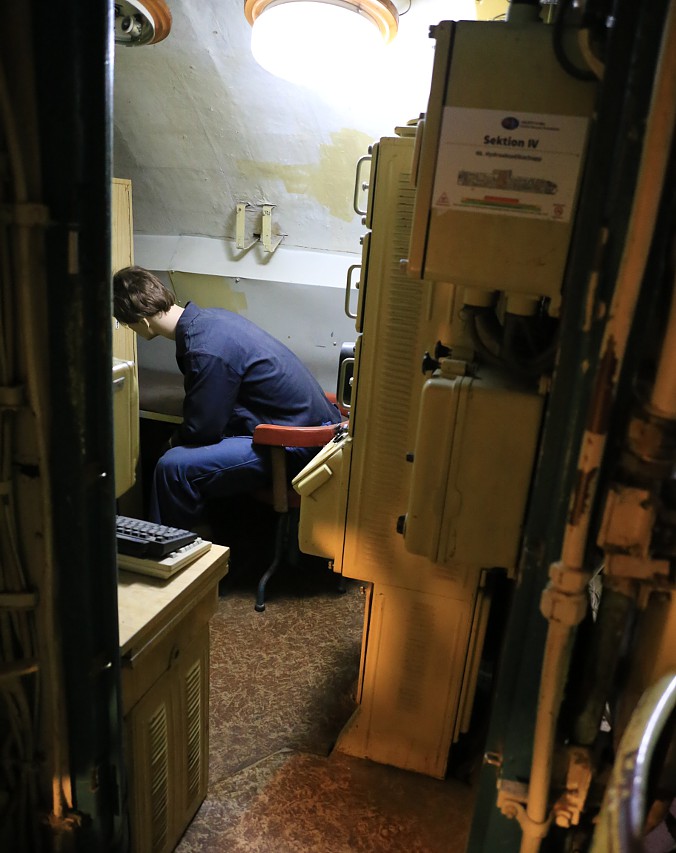
One of the telemetry devices that shows the speed of the rocket.
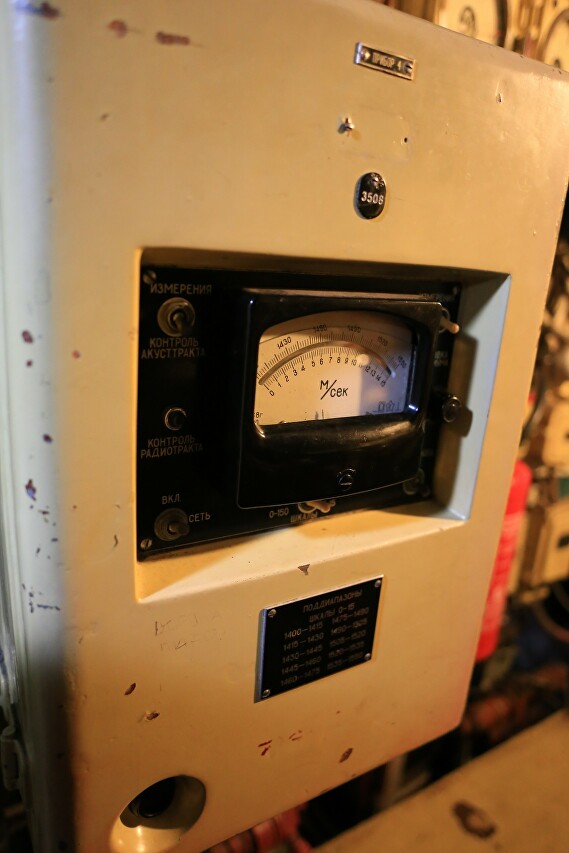
Sonar station. This is the main means of controlling the environment of the mat in the underwater position. In fact, submarines move "by ear".
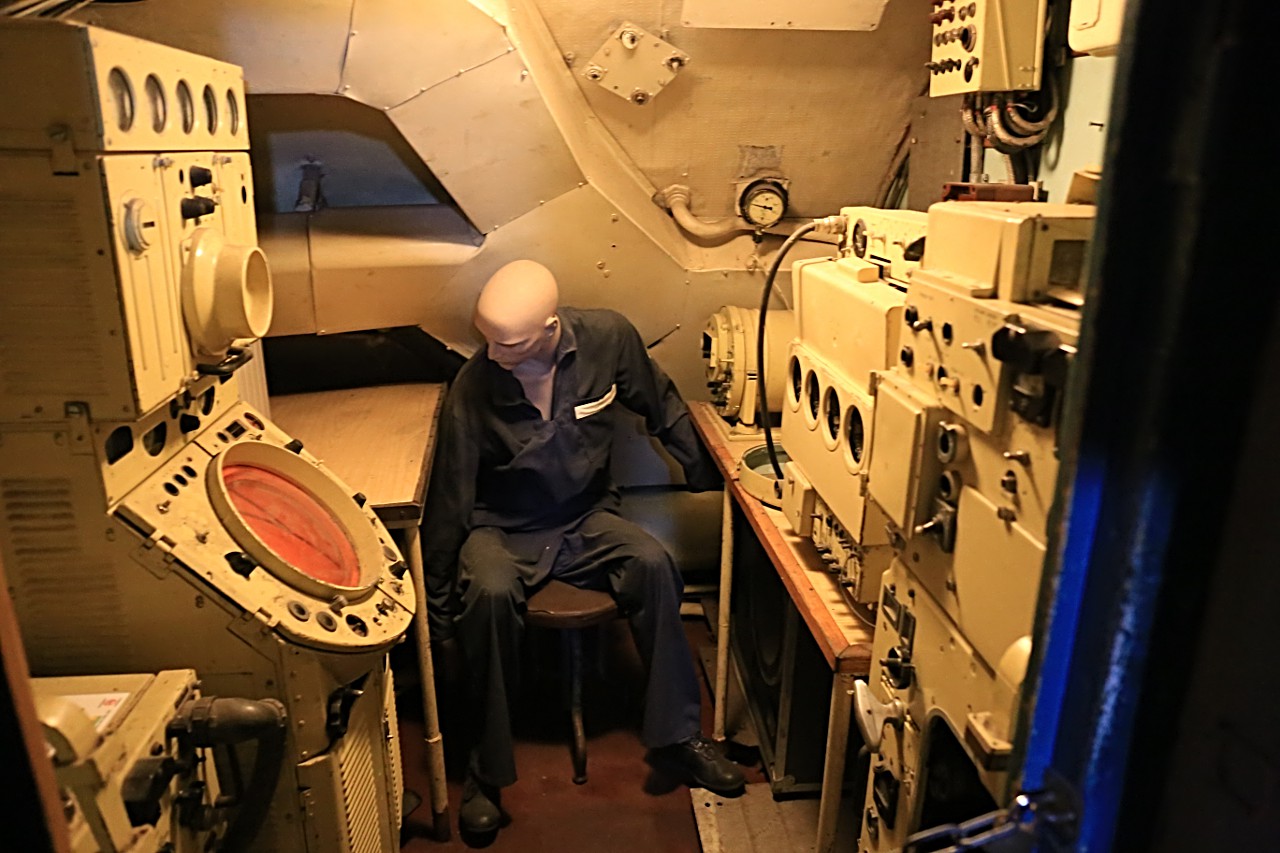
The main periscope is designed to observe the sea surface from an underwater position. There is also a periscope to monitor the air space.
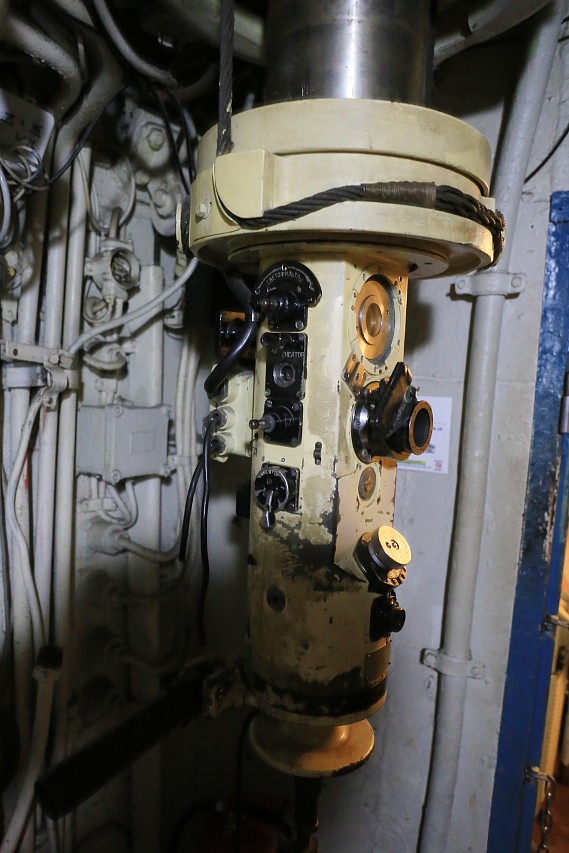
Ballast tank purge control valves. Filling the tanks with water, the submarine sinks, displacing water from them with compressed air, the submarine floats up. By tilting the bow and stern tanks with different volumes of water, the desired trim is set, which accelerates the entry or immersion.
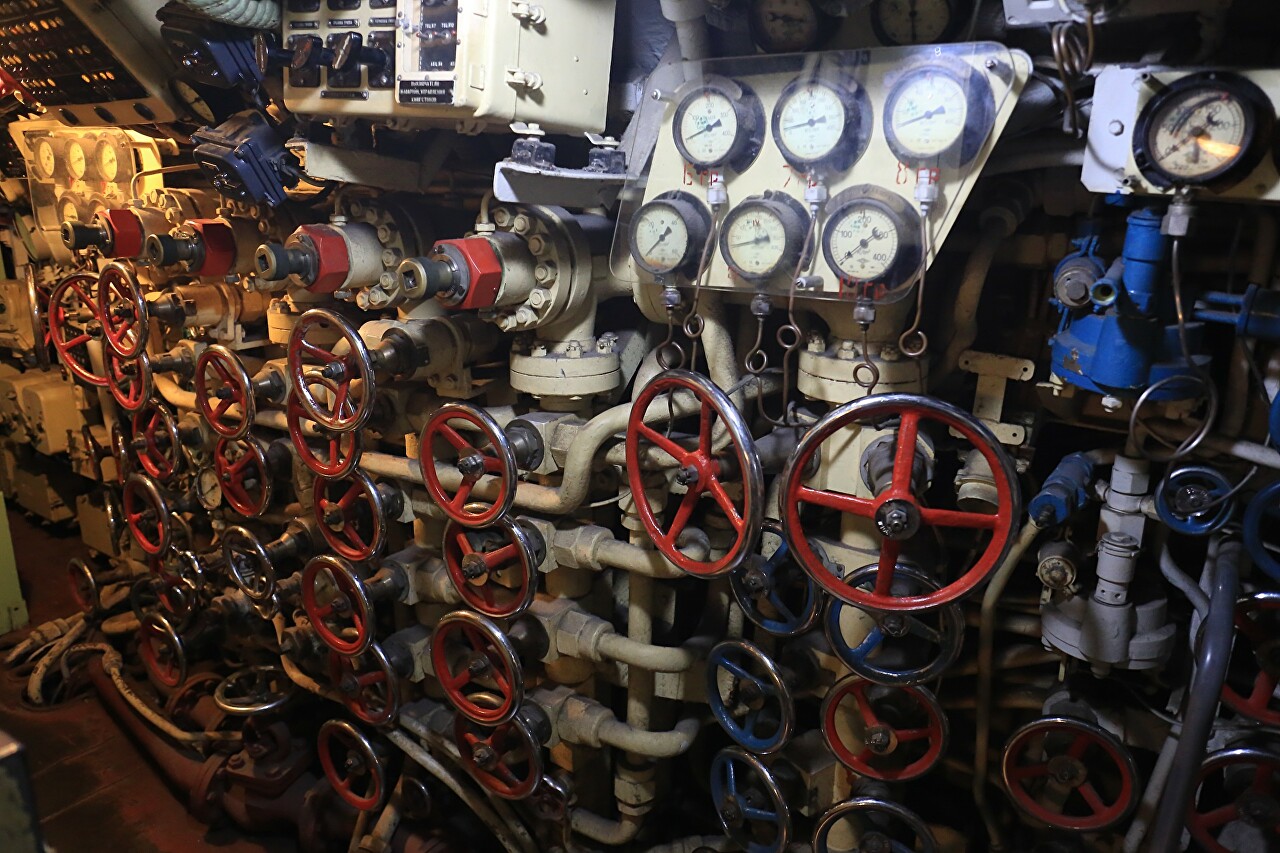
The hydraulic system is very complex and an error in the sequence of operations with the valves can lead to the death of the submarine.
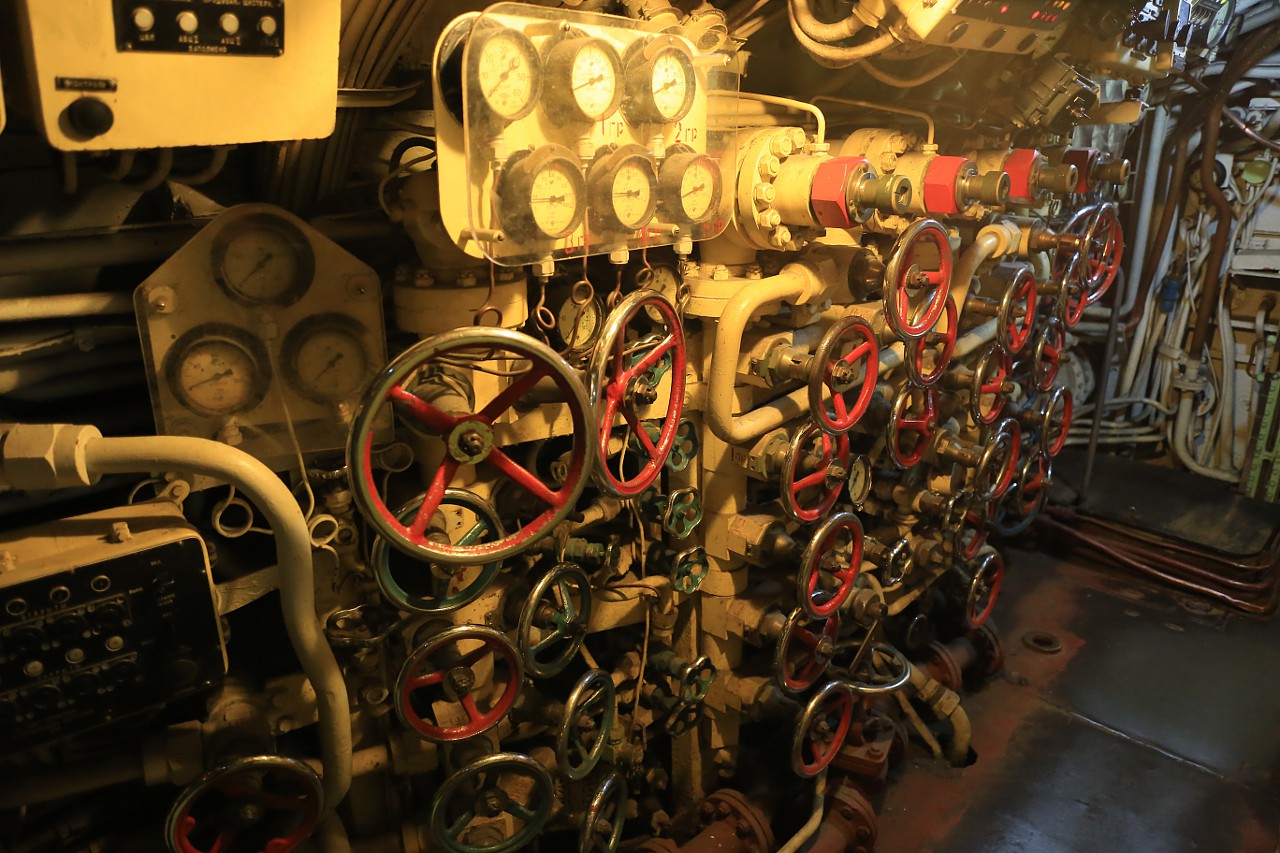
Sailors spend long hours in training to bring their actions to automatism.
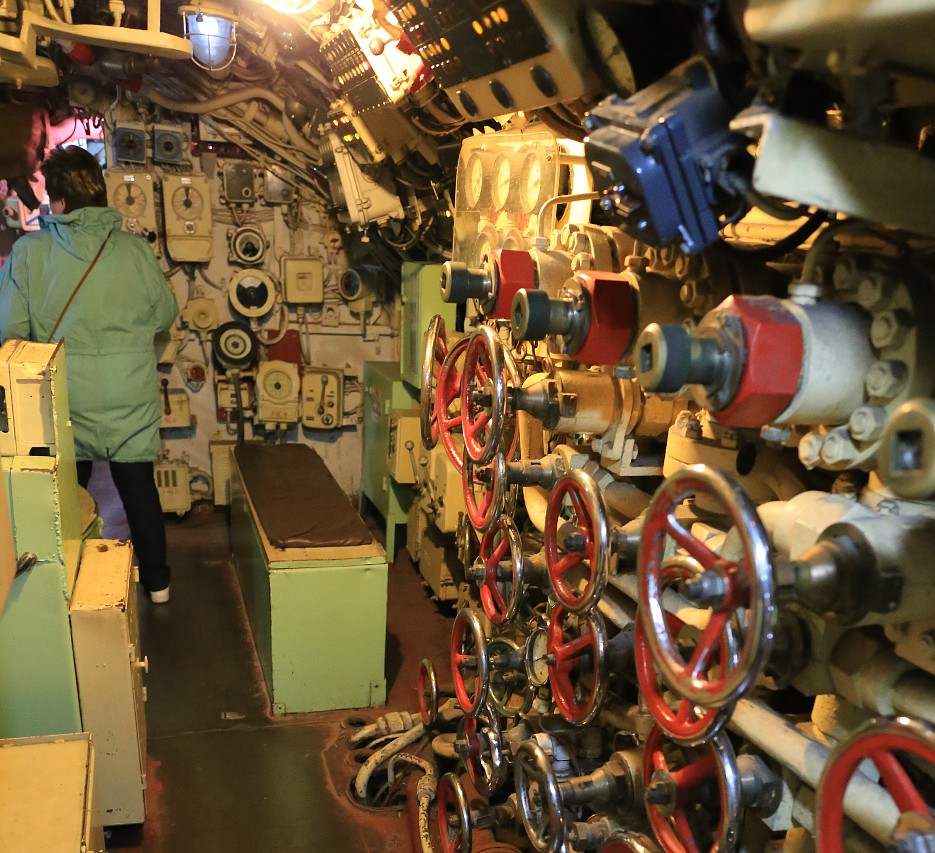
In the same compartment is the commander's cabin.
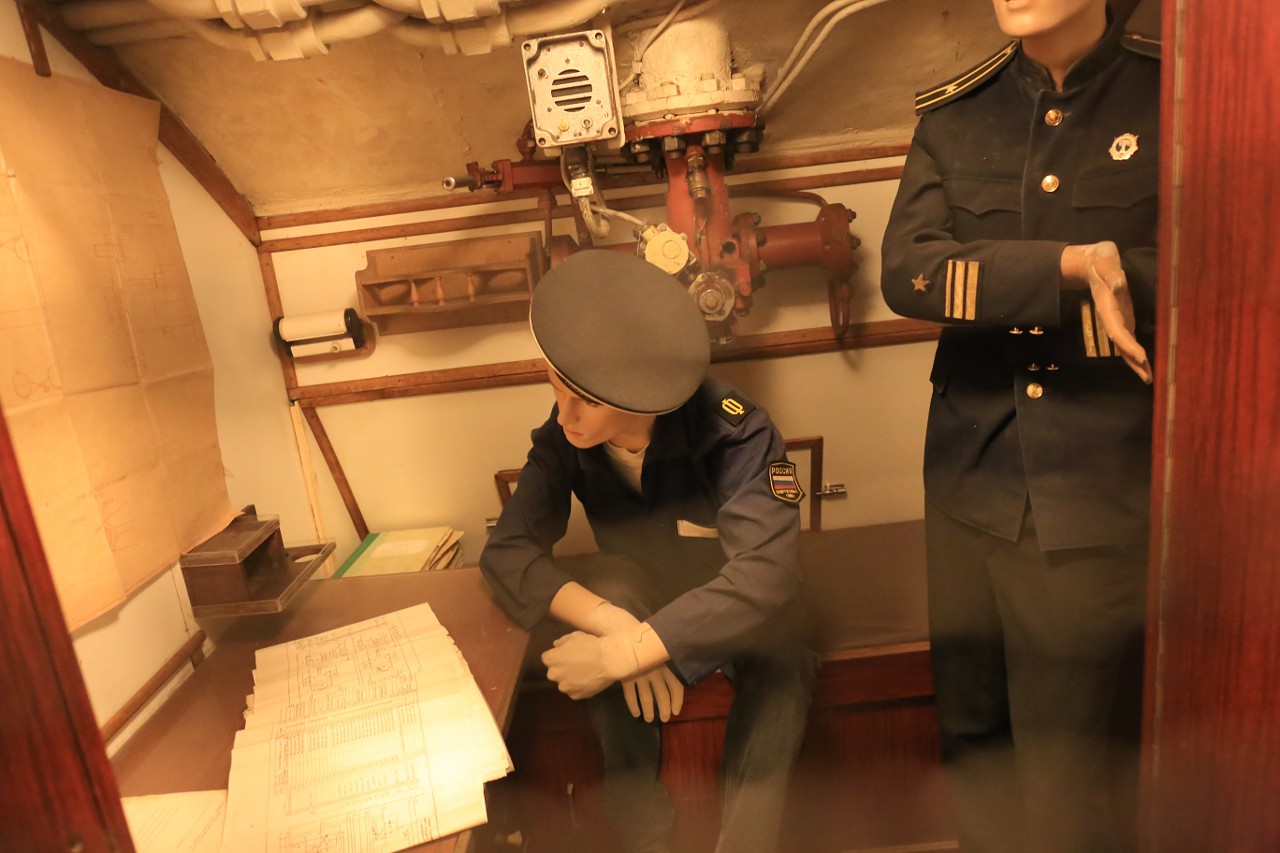
Galley.
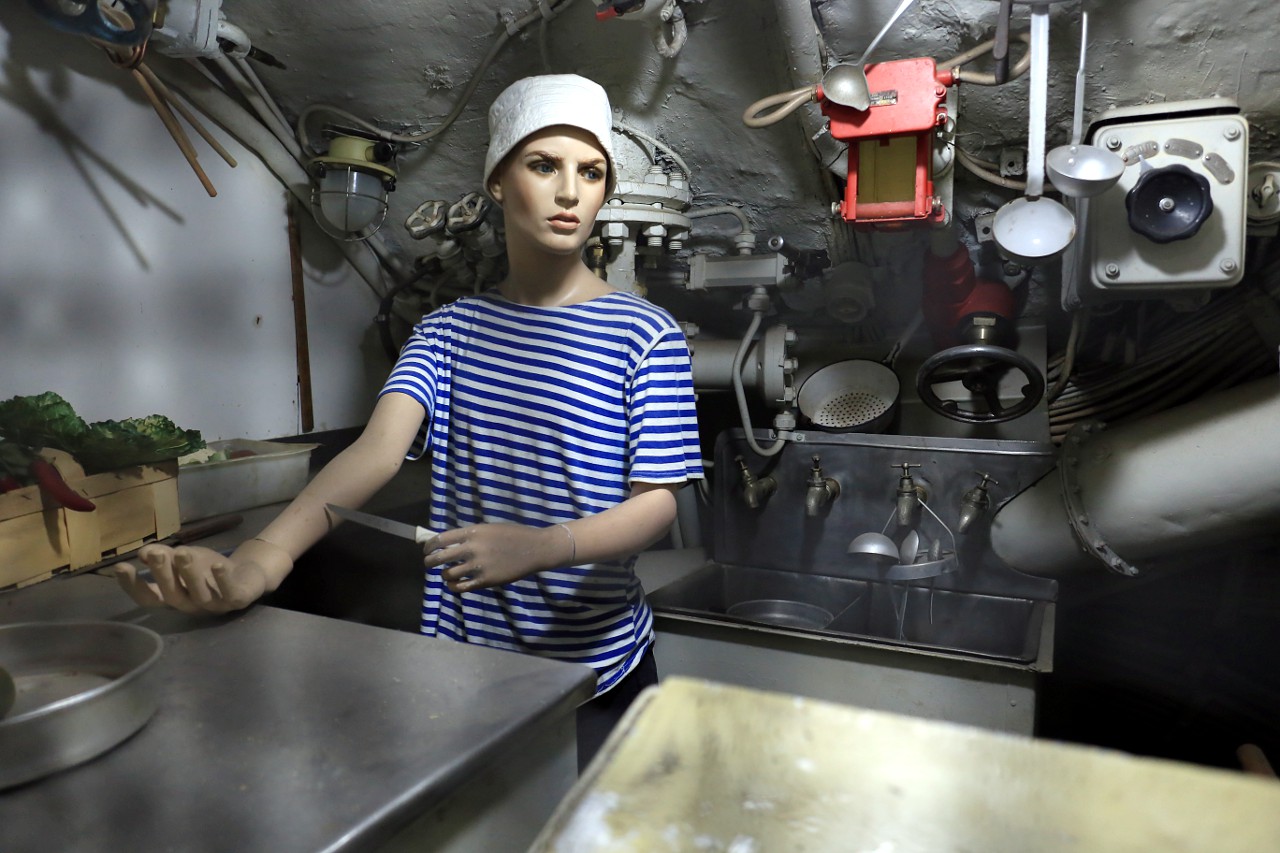
The submarine has only one shower cabin for the crew of 98 people.
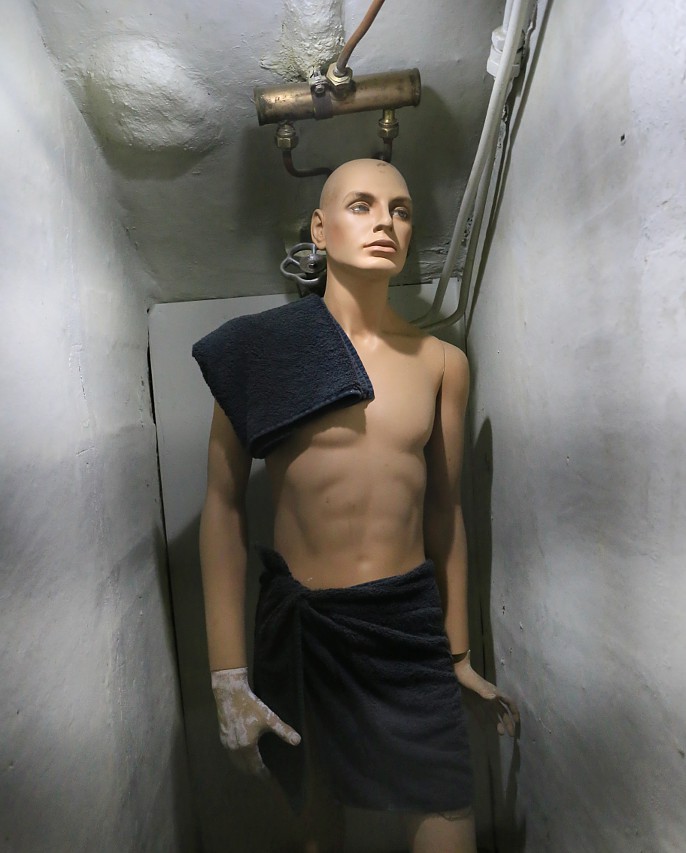
In the sixth and seventh compartments there is a power plant, including two diesel generators.
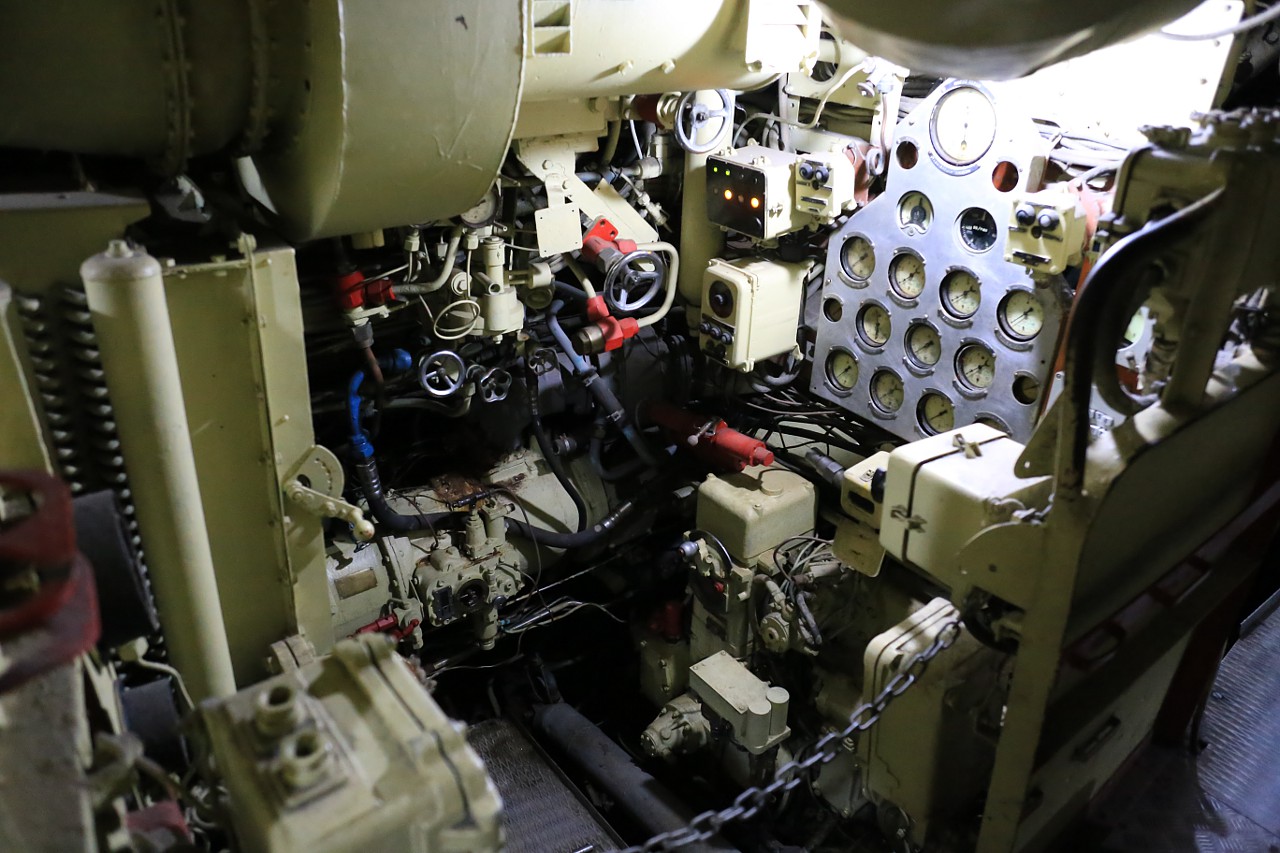
The sixth compartment houses the main diesel engines 1D43 with a capacity of 4000 hp, but we can only see their upper covers.
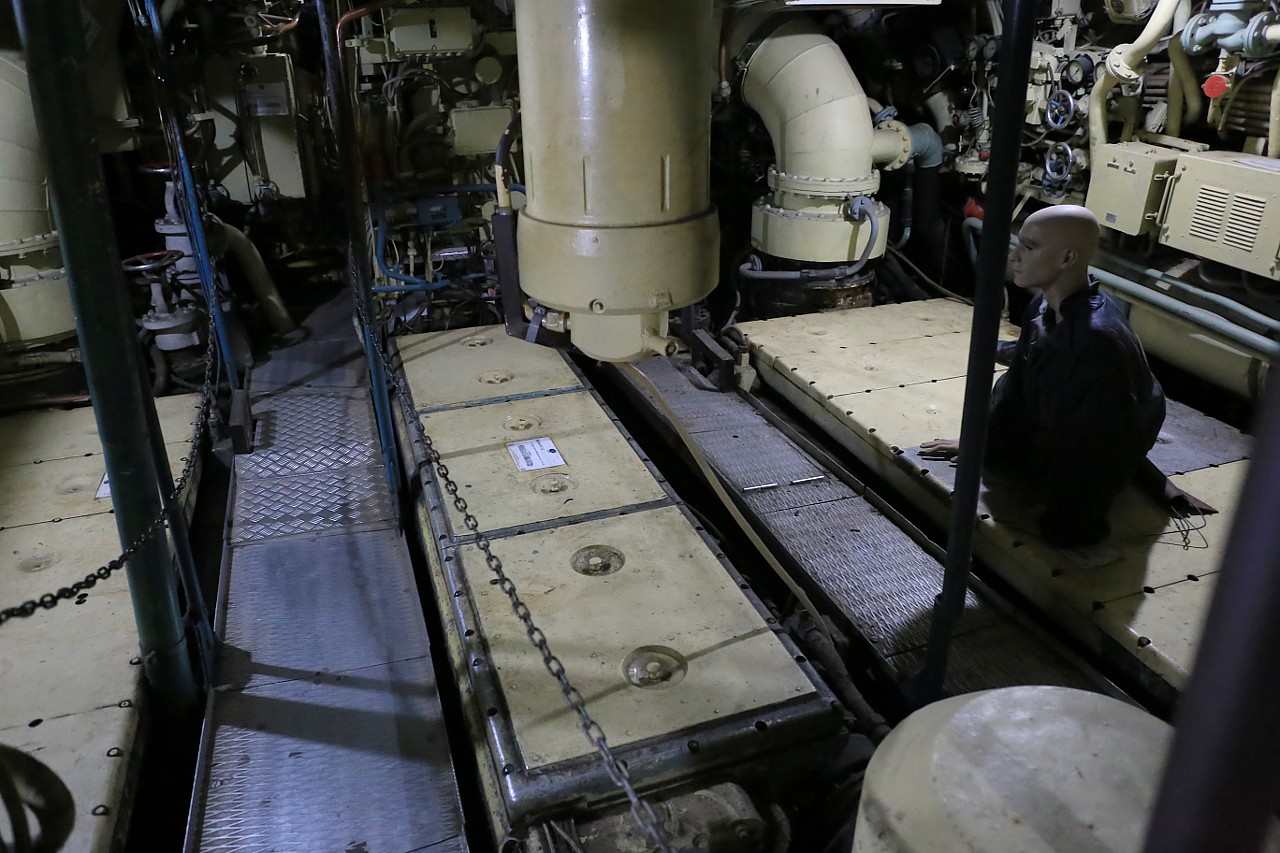
Panel with control devices of one of the main diesel engines.
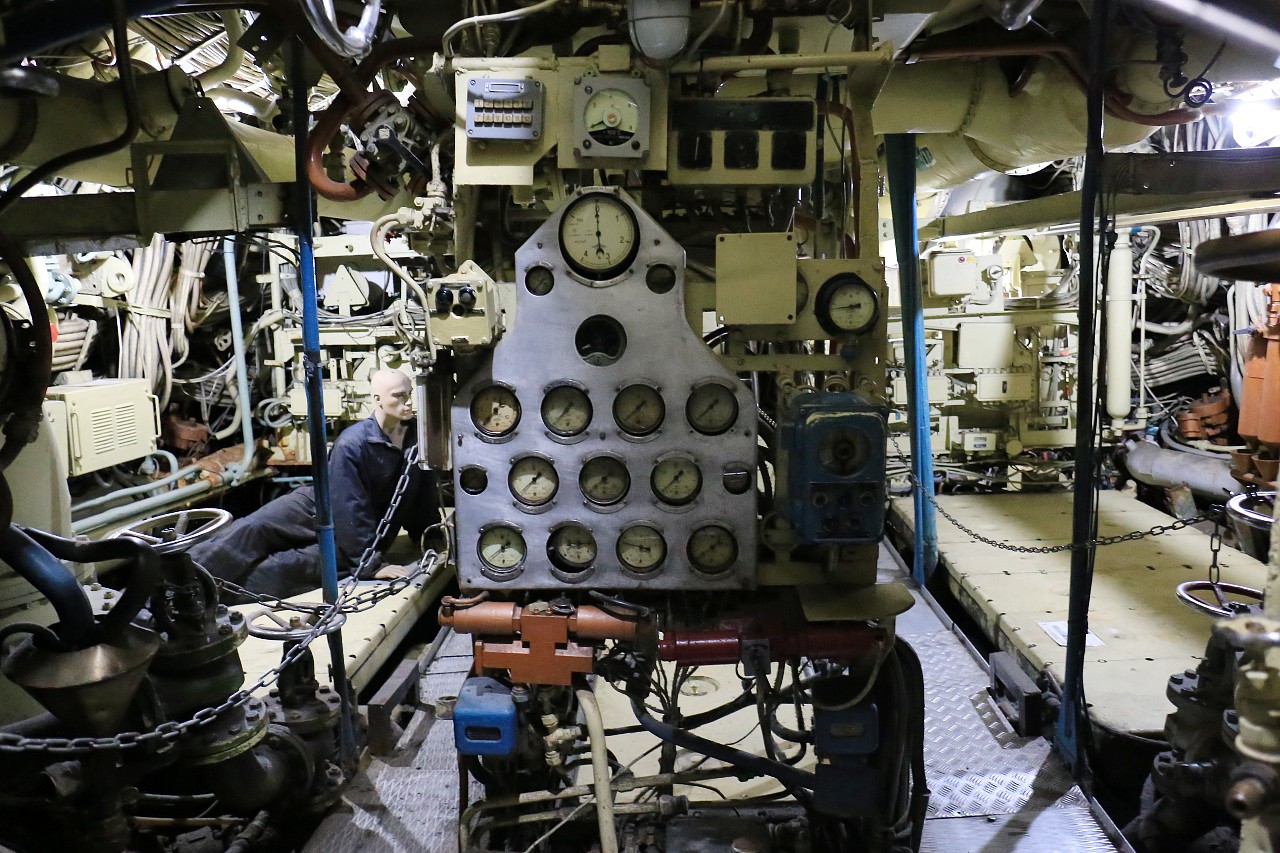
In the seventh compartment on the lower deck, there are the main rowing electric motors, and above them an electric propulsion control post.
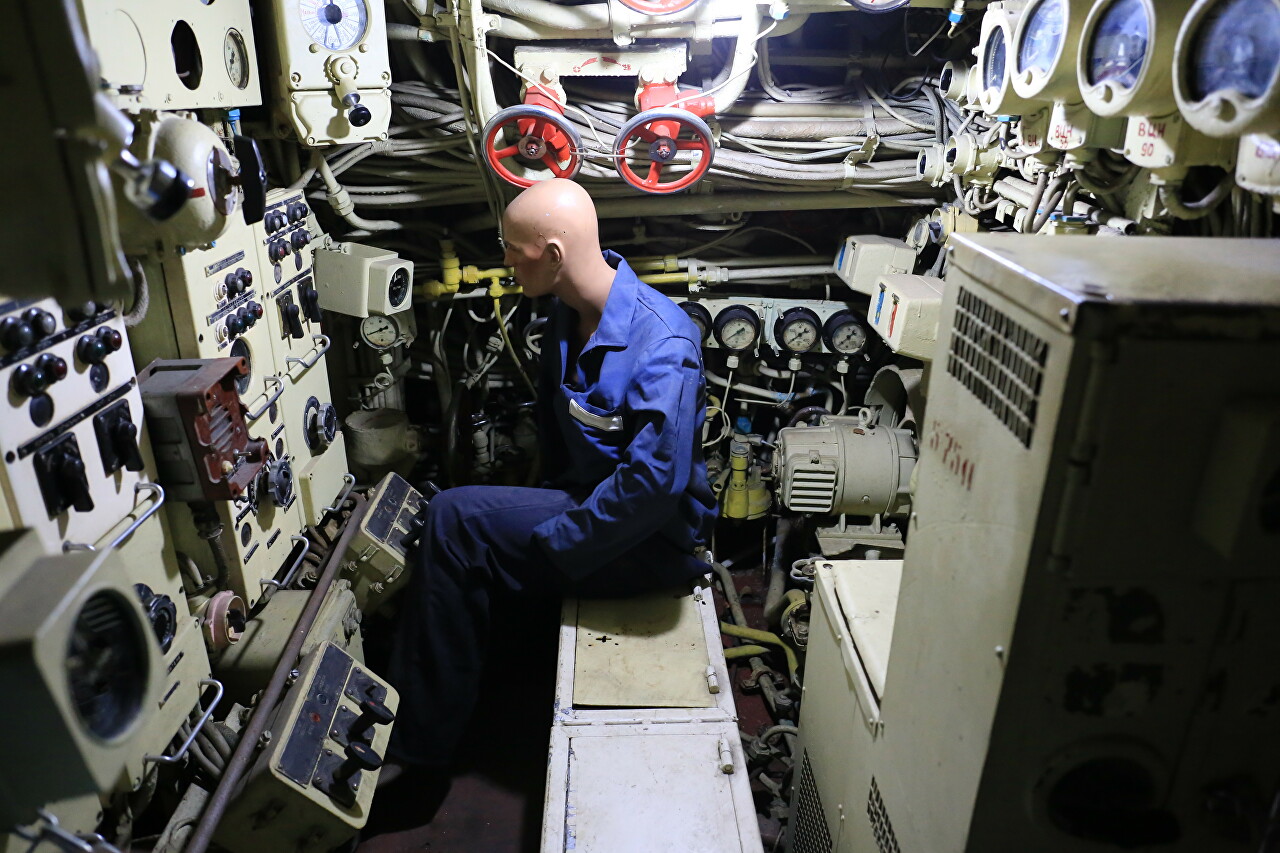
PG-141 propeller motor control panel. The submarine has two rowing engines with a capacity of 6000 hp each.
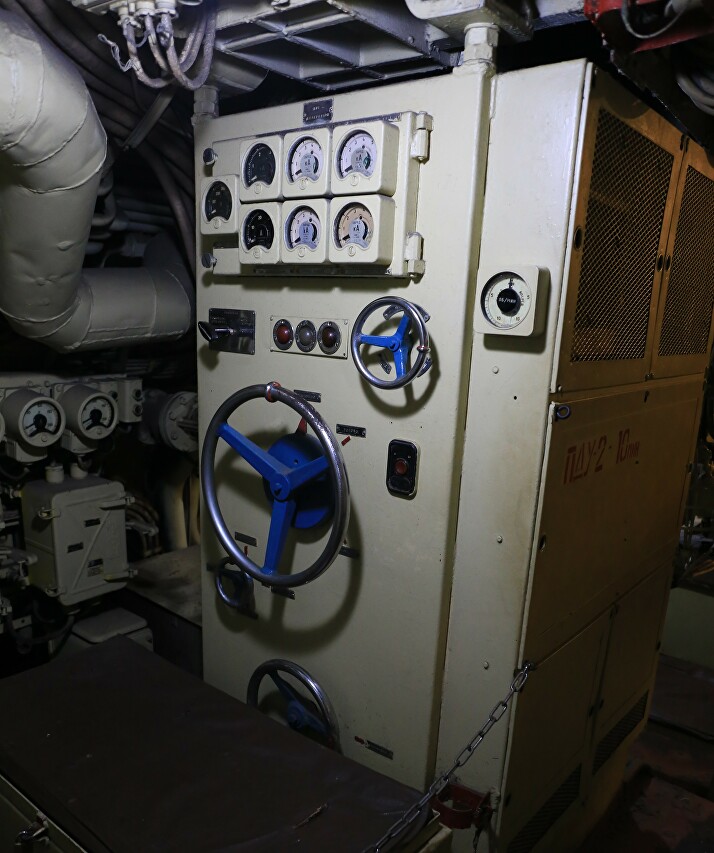
There is also a refrigeration unit designed for cooling the rheostat control system for electric motors.

Toilet (in the Russian Navy it is called "head") on a submarine is a very complex device. In order to wash away the waste of their life, a submariner has to perform a strict sequence of actions with several valves.
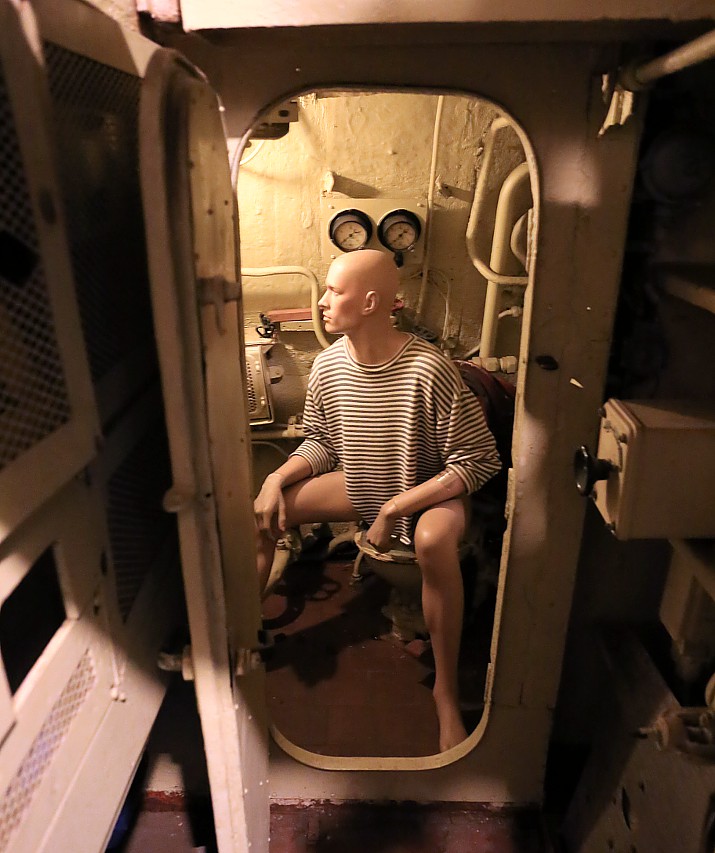
The eighth compartment, the last one in the submarine's sturdy hull.
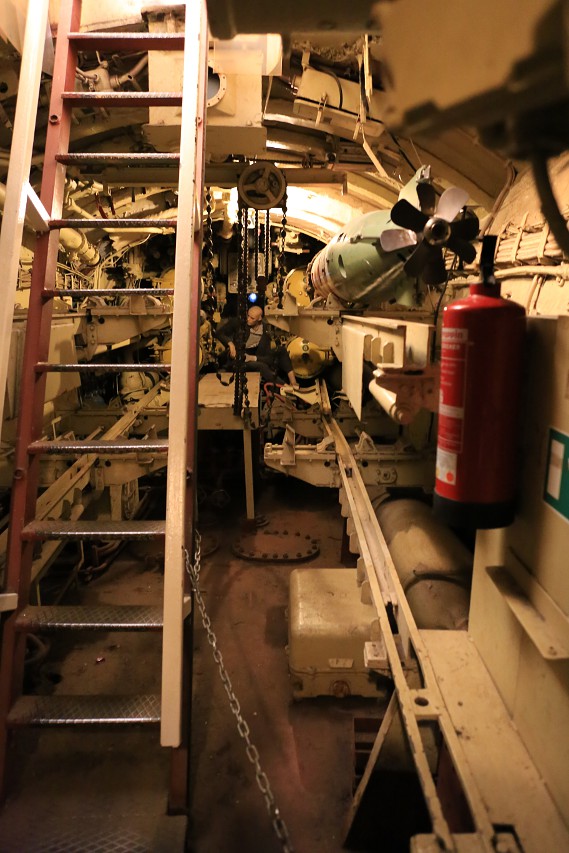
There are four 400 mm torpedo tubes and eight spare torpedoes. The compartment is considered residential, but currently there are no beds in it.
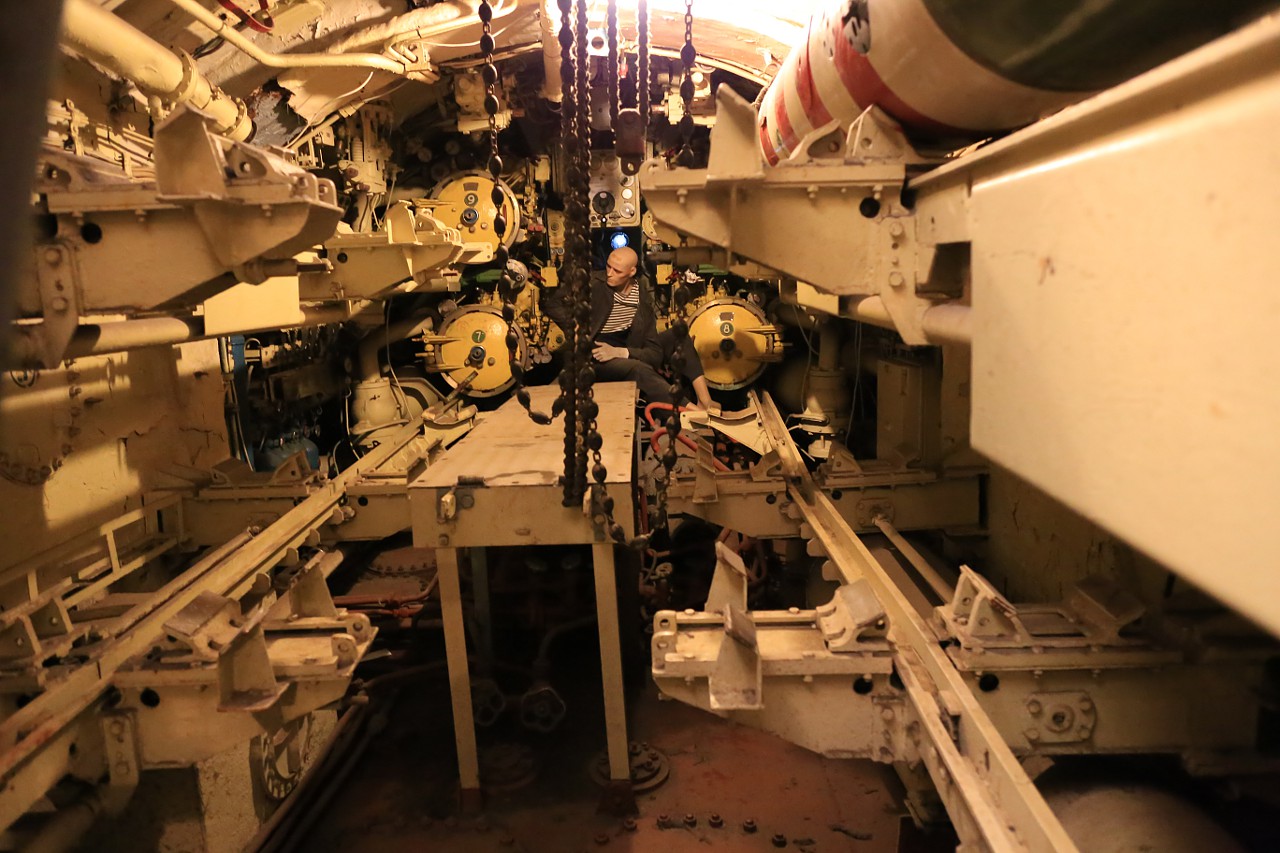
Charging of torpedo tubes takes place with the help of manual lifting mechanisms, this is a very difficult and dangerous process, during which injuries are not uncommon.
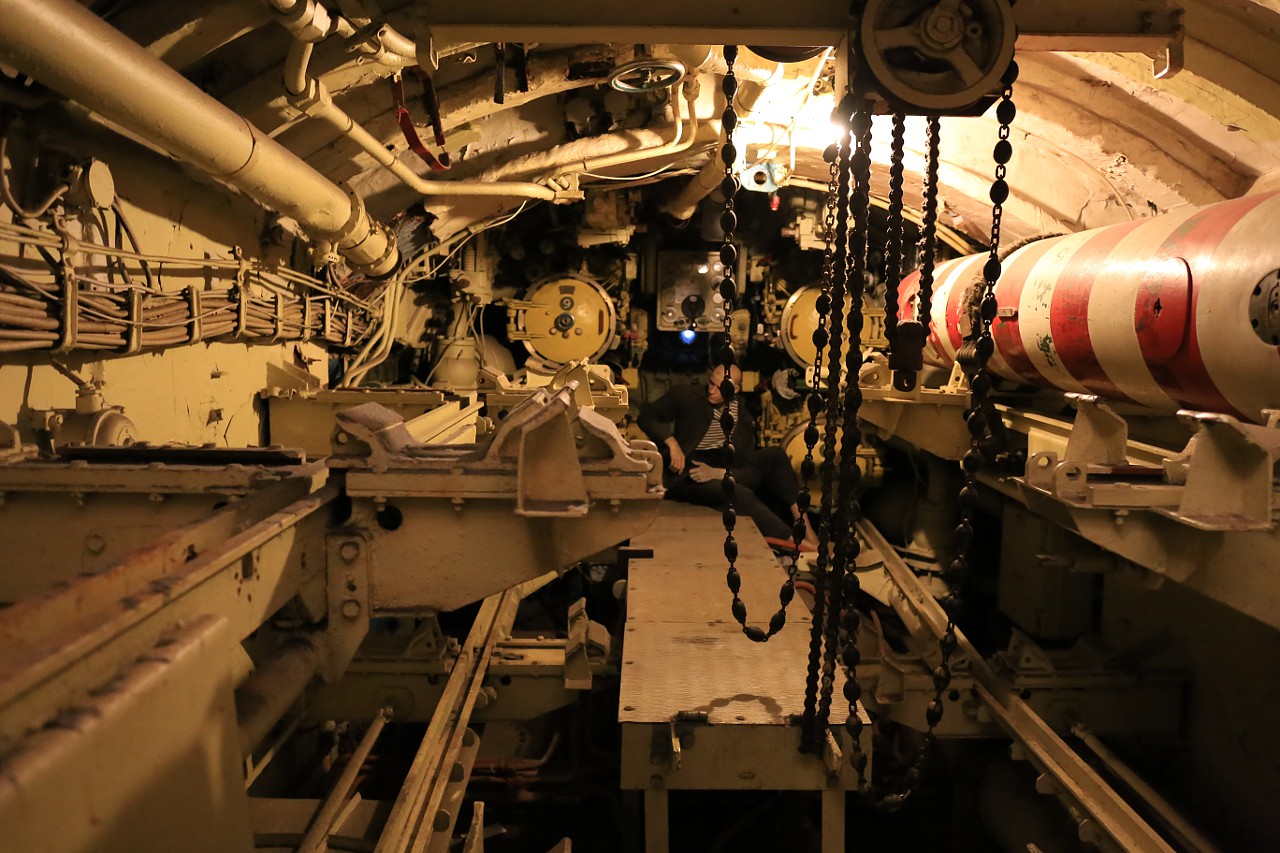
Finally, I leave the sealed, rugged enclosure and find myself under the shell of a lightweight enclosure.
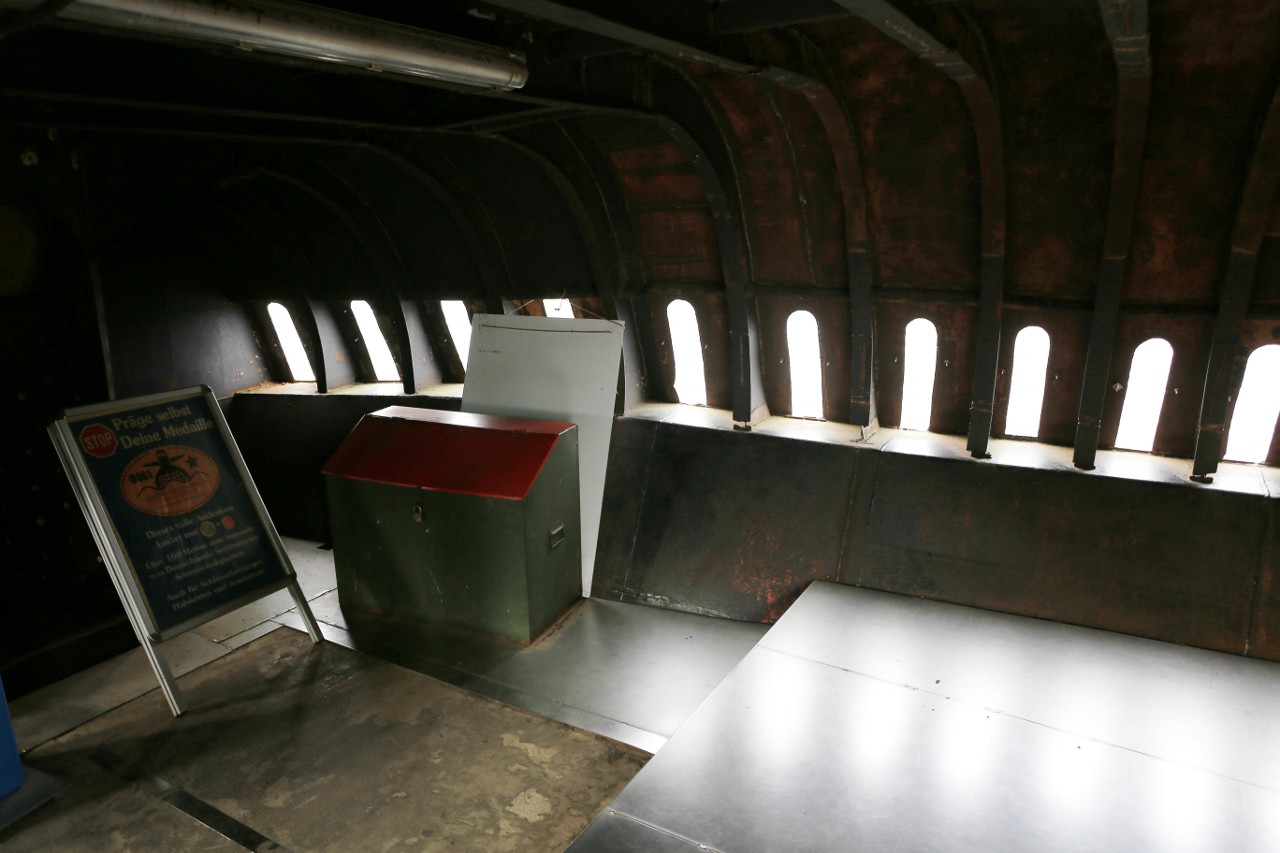
There are high-pressure air cylinders, a ballast tank ventilation valve, and an emergency radio beacon.
